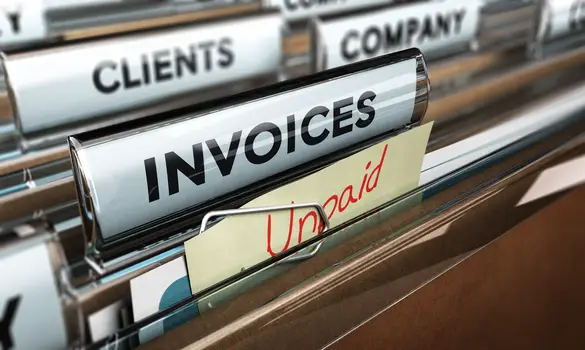
Small businesses deal with clients who do not pay them on time every day. A company can offer their clients the simplest secure payment process and their clients will still not pay on time. Unfortunately, the lack of payments that so many companies deal with negatively impacts their cash flows. For this reason, debt collection for small business is becoming a popular topic among industries. As a business owner yourself, you need to learn how to collect debt. If you do not, you risk going bankrupt and seriously tarnishing your company’s reputation. For this reason, continue reading and discover the best debt collection for small business guidelines.
Establish A Payment Policy
In order to ensure that your small business can collect debt, you need to establish a payment policy. Unfortunately, you cannot trust your clients enough to secure deals with a simple handshake. Instead, require each of your clients to sign a contract for each deal you close with them. Include a payment due date in the contract. If your business offers packages that involve recurring payments, include a specific payment timeline in your policy. The more specific you get in your policy, the more you will be able to secure payments. When your clients fail to pay you the capital your company earned, you have written proof that they owe you the money. This is why establishing a payment policy is a crucial debt collection for small business practice.
Hire A Collection Agency
Small business owners also need to hire collection agencies in order to collect debt. Collection agencies assist businesses in receiving capital from debtors. These professionals are highly skilled in the financial elements of collecting debt. While an agency can assist you in obtaining the money you deserve, they also come at a price. Some agencies charge business owners half of the amount that the companies collect. With this being said, you need to ensure that your company can afford to pay for a collection agency before hiring one. If you do, you can successfully collect debt for your small business.
Document Your Situation
Moreover, document your debt collection situation to receive your earned capital. If you effectively track your situation as it unfolds, you will have the proof you need to win a legal battle. Then, you can collect on your debt and improve your financial situation significantly. The best components to record include each time you talk to a client on the phone, when you send or receive mail from them and the emails you send one another. Many business owners also keep a list of when they meet with their clients. If you end up going to court in an effort to achieve debt collection for your small business, documentation will be beneficial.
Run Credit Reports On Clients
Another step to take to collect debt for your small business is to run credit reports on clients. Before you sign contracts and initiate deals with prospects, check their credit histories. Then, you can get a good idea of how likely they are to not only pay you, but pay you on time. If you find out that a prospective client has a history of missing payments, avoid working with them. When you discover that prospective customers have great credit scores and never miss their payments, consider doing business with them. Perform credit checks on your consumer clients and run business credit reports for your B2B deals. Run credit reports on your prospective clients to succeed at debt collection for small business.
Consider Writing Off Losses
Additionally, consider writing off losses. This is one of the best debt collection for small business guidelines because it explains what you need to do if obtaining your capital is impossible. Unfortunately, many business owners never receive the money that their debtors owe them. However, they can still do something about it. They can write off the debts as losses. Keep in mind that only businesses that sell physical products can reap this benefit. If you own a service-based business, you cannot write off the losses. Small business owners who can take advantage of this option can improve their financial state when debt collection fails.
In order to prepare yourself for the unavoidable situations in which clients do not pay you, learn about debt collection for small business. You can always use a bank lockbox to accelerate your customer payment collection, but you also need to follow the best practices. One of the main pieces of advice you need to remember is to establish a payment policy. Hire a collection agency if your budget allows for it as well. If you document your situation, you set yourself up for a winning court case. Moreover, small business owners who run credit reports on their prospective clients avoid dealing with debt collection in the first place. Consider writing off losses if collecting your debt seems impossible. Keep these debt collection for small business guidelines in mind to set your company up for a bright financial future.
 Business First Family Business, Accounting, Finance, Investing, Marketing And Management
Business First Family Business, Accounting, Finance, Investing, Marketing And Management